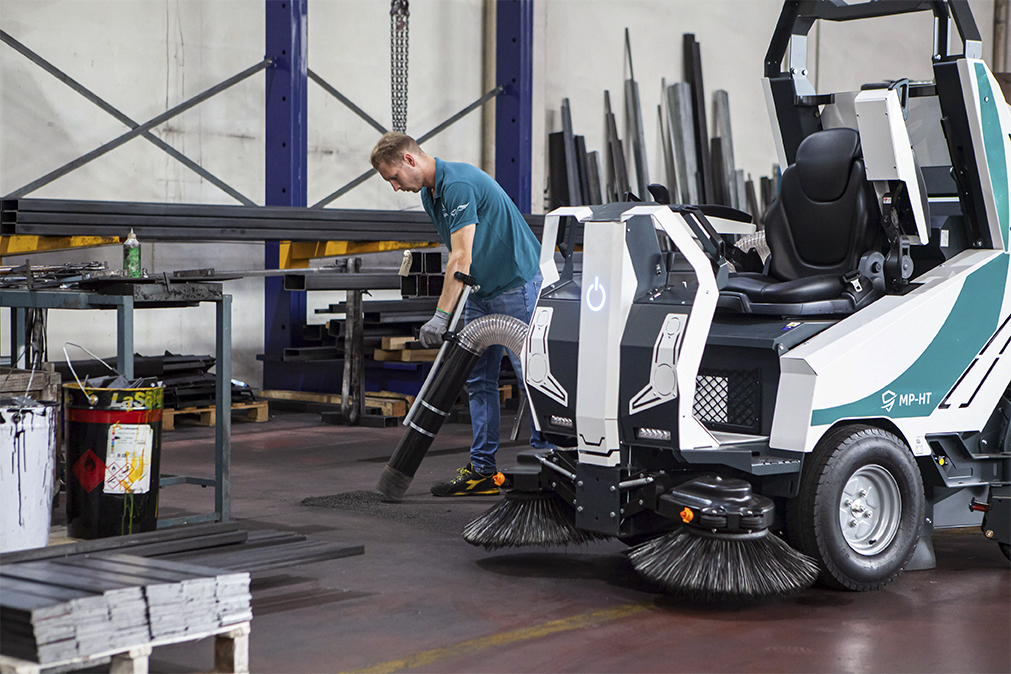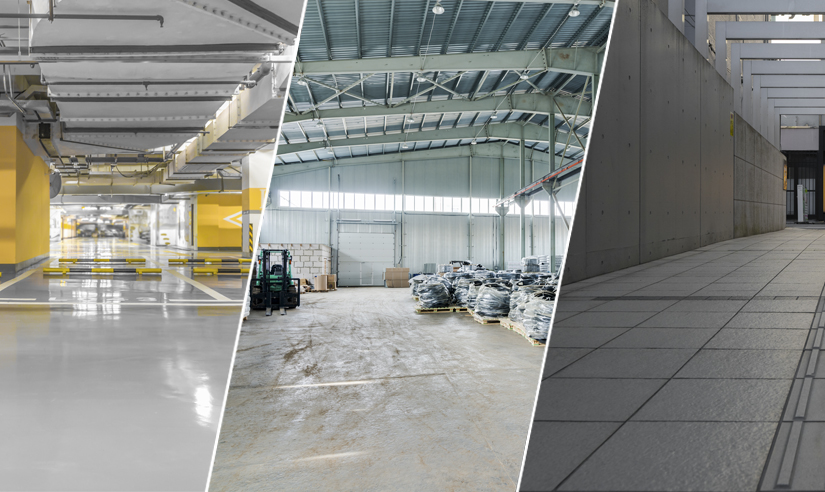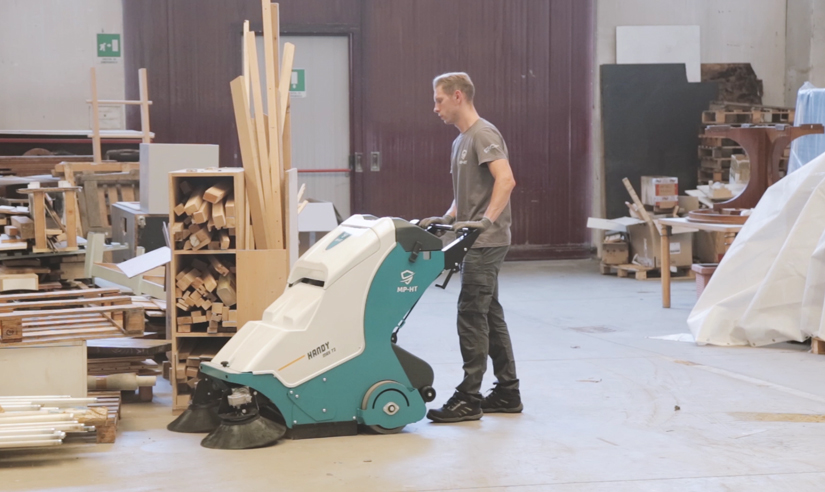
Sweeping machine: features, functions and use
Learn about the features, functions and types of professional sweepers. Read MP-HT's advice for an informed and safe choice.
Read the articleMaintaining cleanliness in work environments is crucial for every business, across all sectors. Keeping a clean environment isn't just about creating a positive corporate image; it also has tangible effects on quality of life and work.
Ensuring the cleanliness of industrial floors and keeping corridors and surfaces clean is essential for productivity and safety. Nowadays, logistics centers, distribution centers, and warehouses are increasingly large and busy structures, operating 24 hours a day, 7 days a week, where the presence of waste, solid or liquid, poses risks to both people and operations.
To choose the appropriate cleaning machinery for proper cleaning and maintenance of industrial floors, it's advisable to evaluate and consider some factors.
Firstly, the type of material of the surface to be treated must be examined. In the industry, floors can be:

Once the material of the industrial floor is determined, it's important to consider the possible problems and types of dirt:
1 Oil and Fuel Stains: Particularly in manufacturing companies, the use of machinery that employs fuel and oils can lead to spills on the floor. These substances can cause dangerous slips and, if not promptly removed, they can damage the protective layer of the floor over time.
2 Debris and Straps: In any warehouse or company, packaging materials such as packing peanuts and plastic or metal straps are commonly used. If accumulated, this material can also cause hazardous slips and, when entangled, damage machinery for the movement of goods and the production line.
3 Dust: Residual dust from processing, even if fine and difficult to see, can damage expensive machinery on industrial production lines if allowed to accumulate. Furthermore, when combined with environmental dust from outside, it poses a danger to workers and anyone who inhales it
Although cleaning is often an underestimated aspect, something that seems to be postponed, addressing cleaning operations promptly and on a daily basis ensures a safe and more efficient working environment.
The key to maintaining a clean environment is regular cleaning. Contrary to what may be assumed, frequent cleaning actually saves time. Allowing dirt and dust to accumulate, however, results in larger cleaning tasks that require significantly more time and money.
Dealing with floor cleaning amidst material scraps that hinder work progress makes cleaning operations challenging and particularly burdensome. This often necessitates more expensive extraordinary maintenance. In such cases, using large cleaning machinery capable of handling larger quantities of waste becomes necessary. However, these machines move slowly and encounter difficulty navigating through production lines or warehouse shelves. Additionally, they entail higher costs both in terms of initial investment and ongoing maintenance.
To save time and money while achieving effective results, cleaning must transition from an extraordinary task to a regular, easy, and quick job.
Constant cleaning several times a week is crucial. This prevents the accumulation of large amounts of dirt, enabling the use of smaller, more agile sweepers for routine cleaning tasks within a short timeframe.
Small-sized sweepers are user-friendly and manageable even by non-specialized personnel, requiring no special licenses. Anyone can operate them to help maintain cleanliness. These sweepers work at a faster pace compared to larger models and require minimal maintenance.
Professional sweepers are indispensable tools for removing non-adherent dirt from floors, preparing the area for subsequent washing.
A compact and agile sweeper allows for easy and effective removal of debris and dust from floors, ensuring a tidy and clean workspace.
Furthermore, thanks to accessories such as the auxiliary suction hose, these machines allow for capturing dust in the tightest corners, where the sweeper cannot reach, as well as on shelving units.

For over thirty years, we have been manufacturing industrial sweepers, and throughout our extensive experience, we have come to understand the importance of adopting a cleaning method that yields tangible results, saves resources, and streamlines production lines. That's why our sweepers are designed to transform cleaning from an obstacle to overcome, which hinders work, into a practice that adds value to your operations, helping you save both time and money.
We design all our sweepers with a focus on features that make work easy and fast:
Discover all the benefits of MP-HT sweepers, and how they will help you transform the cleaning task from an expensive hassle into an added value for your company.